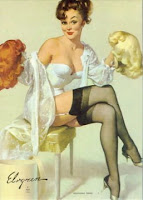
I used to learn so much from kinging and from watching the most amazing troupes and performers come together and craft radical politics into performance art through creative costuming, choreography, set design, and reappropriation of mainstream pop media and music. They were building off histories and traditions of drag culture, a lot of which originated in (dyke) bars and living rooms and cabarets… the margins, left banks, and fringes. But over the past two years I’ve felt hurt, offended, frustrated, and dismissed in the dragking world to which I once sincerely belonged. It seems like so many of the greatest troupes and performers have shut down operation and left the stage. What’s happened to dragkinging as I knew it? Has this aspect of LGBTQ culture and community regressed just as quickly and brightly as it once evolved?
One of the things I love most about my queer community is that we are comfortably willing to remain uncomfortable. Our language, ideas, politics, and sites from which we organize and act are in constant flux. So on one hand, I think so what if dragkinging as I knew it is over? Maybe we’ve moved on to other stuff (for me it’s art-making, blogging, and podcasting) but that won’t last long either. I can live with that and I welcome it. It’s how we grow and shift and change. But the thing is dragkinging is still around. And while there are still probably lots of fabulous troupes and performers out there, my heartbreak is confined to the kinging in my immediate world that has become something incredibly disappointing.

In my past experience, there was often debate and disagreement about whether to approach kinging as performance “art” or something with ARGUABLY less “elitist” connotations. (I want to be clear that I am NOT in the camp of people who see art as wholly, fixedly, and inevitably elite. To make this claim would deny all the grassroots, DIY, daily practiced, personal, indefinable, and outsider art people engage, make, produce, and consume.) But regardless of the diverse visions performers and audiences have held in terms of venue choices (theatre vs. dyke bar), audience interaction (dance on anyone who looks interested vs. maintain the “fourth” wall of the stage), isn’t it at least fair to ask for reflection on the kinds of politics represented in king shows?
I loved kinging for the ways in which it critiqued—NOT reproduced—stock versions of masculinity, misogyny, and racism. So, imagine my embarrassment and sorrow then when one of the kings in my troupe lip-synced the lyrics “she’s a crazy bitch but she fucks so good I’m on top of it” while thrusting his dick in audience members’ faces. His performance was not to critique these lyrics but rather to act them out… literally. I once confronted a king about the lyrics in their act, asking if/how they saw those lyrics as misogynist. The king laughed as said “oh I figured you’d be mad about that because you’re a feminist.” What? You aren’t? No, I guess you aren’t. I’ve likewise found it troubling that in a mostly white troupe kings with white skin privilege are unreflectively appropriating (sometimes in blackface!) the music of artists of colour. We need a dialogue about this! It doesn’t feel ok.

For two and a half years I belonged to a local gender performance troupe. This troupe was (in its heyday) somewhat unique in that performers worked from a variety of places on the gender spectrum. There was even a short time period during which those of us who performed mostly femmes roles outnumbered the dragkings, queens, andro, bois... It was during this time I felt our troupe was growing toward something highly political and subversive, mainly because the quality of the acts and the details we put into each show was (I believe) at its peak. But it was also during this “femme heavy” time that everything seemed to fall to pieces.

Particular femmes were called out as “intimidating” because our voices were loud, we were outspoken, and thus labeled “a force to be reckoned with.” What does that mean? We were ladies with opinions, holy shit. Call the cops. And somehow these critiques got anchored to our performances of femmeness, despite the diverse ways in which we each interpreted and enacted femme identity. It was a weird and upsetting turning point that (for me) underscored a reproduction of gender division and sexism in a community I once thought to be safer of sorts.

I didn’t know how to reconcile all this stuff at the time so after some email exchanges and breakdown meetings I made the decision to resign from the troupe. But as I write this blog I have to wonder if all of this stuff is deeply connected. A lot of the debates about venues and art and elitism were intertwined with discussions about how our troupe needed a balance between political acts and entertainment—as if these are mutually exclusive terms! But maybe that’s just it: my overwhelming enthusiasm for dragkinging was about queering (as a verb) our costumes, our genders and our sense of creativity itself in ways that COULD NOT be distilled or separated out. Queering, to me, IS political in a way that affects and alters the idea of performance itself—its venues, audiences, performers and their acts. And I guess not everyone welcomes that kind of change no matter how open or unspecified or nonlinear it is. Change is scary when it asks us to question how some people are unfairly privileged in a setting that claims to be collaborative.
So in my world, the carnival lights are off. My wigs, boas, chest hair, tutus, tiaras, and cop hats are in a drawer. And I’m looking for something queer to do on a Saturday night.
(A shout out to Rodney for this title!)

No comments:
Post a Comment